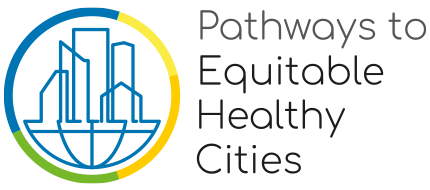Authors: Sabrina Mustabin Jaigirdar, Zahidul Quayyum Dhaka City’s overall development programme and planning are complicated by its multiplicity of stakeholders and actors working on improving poor physical and social infrastructure (e.g., education, healthcare, communication), housing and neighbourhood conditions, and addressing poverty and inequality. This situation is further exacerbated by inadequate financial resources, poor administration, inefficiency, and a lack of cooperation …
Pathways to Equity at the International Society for Environmental Epidemiology
This year, Pathways members Barbara Metzler (PhD student) and Sierra Clark (former PhD student) travelled to Athens to attend and present their research at the Conference of the International Society for Environmental Epidemiology (ISEE, September 18th – 21st 2022), which is the largest gathering of environmental epidemiologists each year. After two years of being held virtually due to COVID-19, about …
Why cities need to preserve green space: A case study of Dhaka city
By Khadiza Tul Kobra Nahin, Hasna Hena Sara, Zahidul Quayyum Human and nature are two inseparable entities that have interchangeable interactions at every level of life. The negative consequences of abandoning nature are increasingly being recognized by countries around the world as the effects of segregation from nature on human health become more clear. Therefore, cities worldwide are now trying …
Protecting the health of vulnerable city residents during the Covid-19 pandemic and beyond
The 19th century notion of cities as spectres of ill-health re-emerged early in the Covid-19 pandemic. The density of people in cities was thought of as synonymous with disease transmission, with urban hotspots emerging in many countries. Since then, evidence undermining the link between density and disease has accumulated. The underlying vulnerability of cities has not been their critical mass …
The water hunt: Unreliable water supply in low-income communities of Accra
Access to potable water supports life and improves well-being. However, household access to potable and uninterrupted drinking water supply continues to elude communities throughout Accra as well as its neighbouring towns. This commodity is essential for the survival of Accra’s residents, and the absence of reliable water threatens their very existence. As Ghana becomes increasingly urbanized, and its population increases …
Enhancing walkability in Accra
Walking is universally considered as healthy and is a prerequisite of mobility: moving from one place to another often starts and finishes with a walk. According to the World Health Organization (WHO), walking is the most popular means of transport across the world; however, data on walkability worldwide are scarce since in the past “walking has not been seriously considered …
Accra! Accra! Accra! – The chorus of accessibility
The city of Accra The city of Accra, like most cities in developing countries, is a city with a constantly changing boundary driven by population growth, migration and urban sprawl. Over the years, the city of Accra has been referred to as the Greater Accra Metropolitan Area (GAMA) due to the fast-expanding nature of the city to encompass the emerging …
Pathways consortium meeting on health and social inequalities goes online
In March 2021, researchers from 6 countries in the Pathways consortium came together to share on-going work related to health and socioeconomic inequalities across the project’s five study cities. While typically held in person, we moved the meeting online rather than postpone for a second year running. This meeting fostered a consortium-wide discussion on how we can use interdisciplinary scientific …
Light for health
Today, our home environments have become more relevant than ever as we have all been forced to “stay at home” to reduce our interactions with one another, and consequently decrease disease transmission. As such, it has become even more critical that we understand how we can make our home a healthier environment that is conducive for both wellbeing and work. …
The equity of road pricing
Road pricing is increasingly being considered by cities as a strategy to manage congestion, meet climate targets, and support transport infrastructure. A handful of cities including Singapore, London, Stockholm, and Milan have already implemented large-scale road pricing systems. Most of these systems are implemented as cordon-based systems, where drivers have to pay to enter a cordoned area – usually located …
